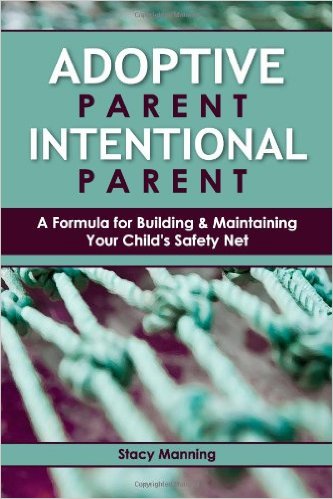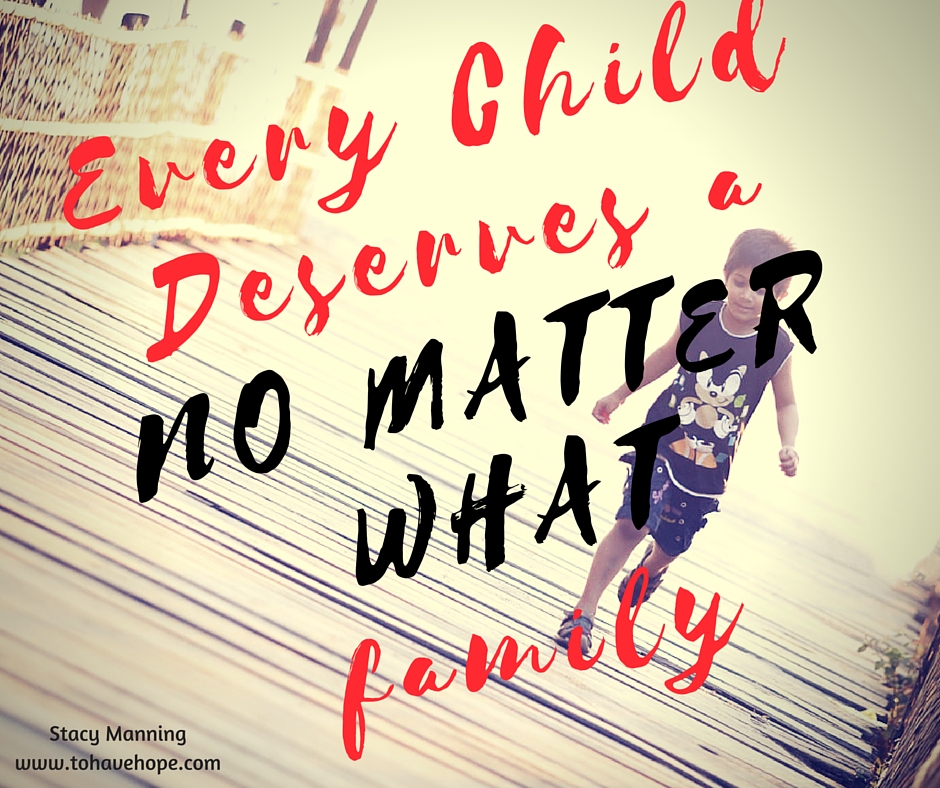|
I Was Thinking . . .
As intentional parents, we need to be aware of the fact that our kids are true survivors-all of them. Being a survivor doesn’t necessarily have to doom them to an unhappy life; it can become the fuel for success or perseverance. However, if we aren’t identifying the set of behaviors used as survival techniques and working to meet the needs they fill, the continued use of them will create very real issues with having close, lasting, relationships. When those healthy relationships are not formed our kids will suffer a lack of empathy for others, trust in the world and very low self esteem among other things. Survival behaviors are all about control. They keep the focus of control in the hands of the child so that he can protect himself from being hurt again. Keeping control helps them make sure no one can see how vulnerable they really are. Survival behaviors are used like a mask to make sure no one can see if they feel helpless, powerless or out of control in any situation with any person, place or thing. Our kids hang onto survival behaviors because of unhealthy, irrational and non-reality based thinking. Until they have had enough consistent loving care and executive function begins, magical thinking and history make up the filter with which they survive the world. Some examples of the way our kids filter their lives would be: “I’ll reject them before they reject me.” - This child is never happy with anything we as parents do or say. She/he pushes us away especially after something good. This child might lash out at parents after she/he has done something wrong, telling the parents how bad they are. “I have too much to lose to let my guard down.” - This child never opens up, only lets you in on their terms (physically and emotionally). “I don’t know what normal is so why try?” - This child is the limp noodle, won’t try. We cannot motivate him/her to do things, he/she doesn’t have any vision for a positive future. “I know more than they do so why listen to them?” - This child comes off very narcissistic, a know-it-all, willful and defiant. “If they know too much about me, they won’t like me.” - This child will roll with the punches no matter what. He/she will look ultra-resilient and fit any mold. He/she is good at knowing what others need and becoming whatever that is. He/she doesn't let anyone see his/her real feelings - only the ones he/she feels other people will accept or that will make him/her worthy, even if he/she has to make them up. “If I am perfect, maybe they’ll keep me.” - This child will forsake his/her own needs to be perfect, deny his/her true feelings to be perfect, will even physically and emotionally run himself ragged to be perfect in any situation. We, as adoptive parents, can miss this one because it is easy to live with. Our children’s survival behaviors were formed to allow them to survive in their past. Unfortunately, the input they receive from the world now passes through that filter already in place. Their filter is made up of a use-dependent brain that has formed neurons to manage a life in survival, a high alert limbic system, stunted brain development and a core belief that says, “I am not worthy.” The sooner we can identify survival behaviors the better. As intentional parents, we need to practice seeing our children’s survival behaviors as what they are so that we can be effective in disproving the irrational thinking that keeps that filter in place. We are better parents if we understand survival behaviors because that understanding allows us the ability to keep from getting caught in a battle with what we now know is not rational thinking or action but a kid that is triggered and believes that this is the way to survive. If we have a plan in place everyday, life will be affected by the decrease in the destructive emotions and behaviors our children display. Finally, it is important to identify and deal with survival behaviors because long time usage can lead to an inability to ever change that filter which will inevitably create hardship in the future. Start today and become clear about where your child is at.
0 Comments
|
Categories
All
Archives
February 2020
|




 RSS Feed
RSS Feed